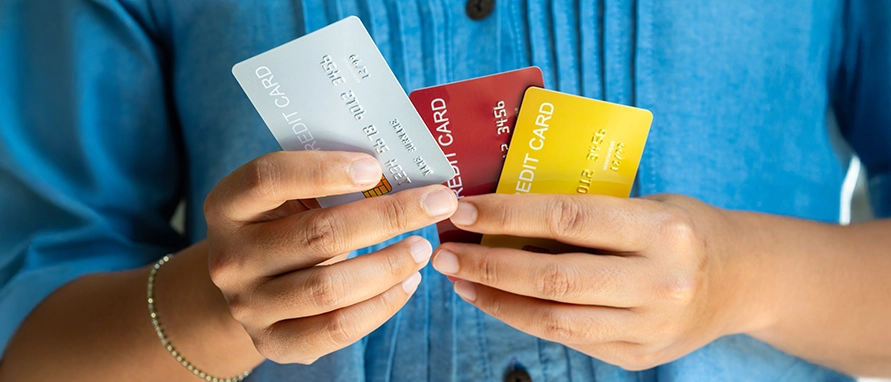Multiple credit cards can affect your credit score in both positive and negative ways, depending on how you manage them.
Positive effects include
Distributing your expenses across several cards helps reduce the percentage of credit used, improving your score
Keeping older cards open while responsibly using new ones contributes to a better credit profile
Having different types of credit, including cards and loans, builds a healthier credit record
Negative effects include:
Every credit card application triggers a hard enquiry, which can lower your score temporarily if done too often
Higher risk of missed payments
Managing many cards increases the chance of missing due dates, which significantly hurts your creditworthiness
If unused cards are closed due to inactivity, it may reduce your overall credit limit and increase your utilisation ratio
If you're still wondering, how many credit cards should I have, the answer depends on how well you can maintain a low balance and pay on time.
















